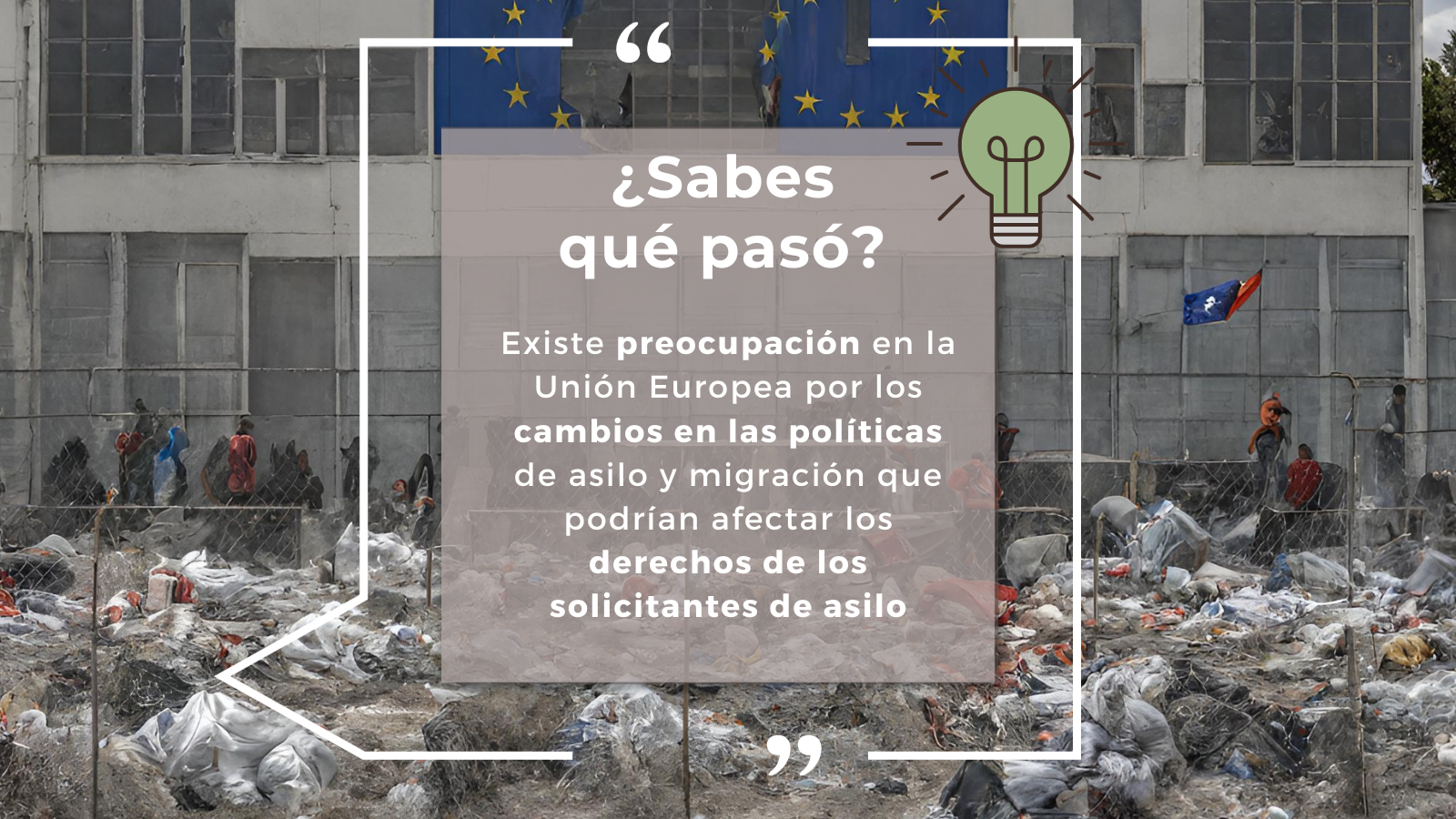
¿Sabes qué pasó? Weekly Newsletter October 02 to 08.
European Union: concern over new changes in asylum and migration policies
European Union (EU) leaders have agreed on a stance against surges in arrivals at Europe’s borders and cases of “instrumentalization” of migrants. This agreement would allow EU member states to deviate from the bloc’ s usual asylum and reception rules.
Amnesty International has expressed concern about this agreement, arguing that it could jeopardize the rights of asylum seekers by delaying their registration, channeling more people through second-tier border asylum procedures, and expanding detention at the border. The organization also urges not to normalize the use of emergency provisions in Europe and to reject the notion of “instrumentalization” of migrants as a justification for suspending rights.
The EU institutions hope to reach agreement on this and other proposals in the European Pact on Migration and Asylum by the end of 2023 or early 2024.
The Strasbourg Principles: linking environment and human rights
These are a set of essential principles in the field of international human rights and environmental law, and are designed to provide clear guidance to judges and lawyers involved in international environmental litigation cases.
Established in 2020 during a conference at the European Court of Human Rights in Strasbourg, they address the growing concern about the negative impacts on human rights caused by environmental degradation and climate change.
Thus, the principles underscore the human right to a safe, clean and sustainable environment, which encompasses both substantive and procedural aspects, including access to information and environmental justice.
They also define who can be considered victims in international environmental litigation and how to prove damages, allowing indirect evidence and presumptions based on facts and scientific data.
Finally, they emphasize that human rights treaties should be interpreted in a manner consistent with international environmental law, allowing legal action in cases of environmental violations when the right to a safe environment is recognized in national legislation.
Narges Mohammadi: Nobel Peace Prize 2023 for her tireless struggle for women’s rights in Iran.
The Norwegian Nobel Committee has awarded the 2023 Nobel Peace Prize to Iranian activist Narges Mohammadi for her work as an activist. fights against the oppression of women in Iran and the promotion of human rights and freedom, despite facing more than 10 years of imprisonment in Tehran.
Her work in defense of human rights began at university, while studying physics and engineering, and since then she has fought for equal rights for women in Iran, denouncing human rights violations, especially in the case of prisoners of conscience and minorities. In addition, he has advocated for democracy, free elections and the abolition of the death penalty in his country.
Mohammadi has suffered multiple arrests and convictions, accumulating a total of 31 years in prison and 154 lashes. His family lives in exile in France.
The award is an endorsement of the women’s advocacy movement in Iran and a setback for the Iranian regime, to be presented in Oslo on December 10.



